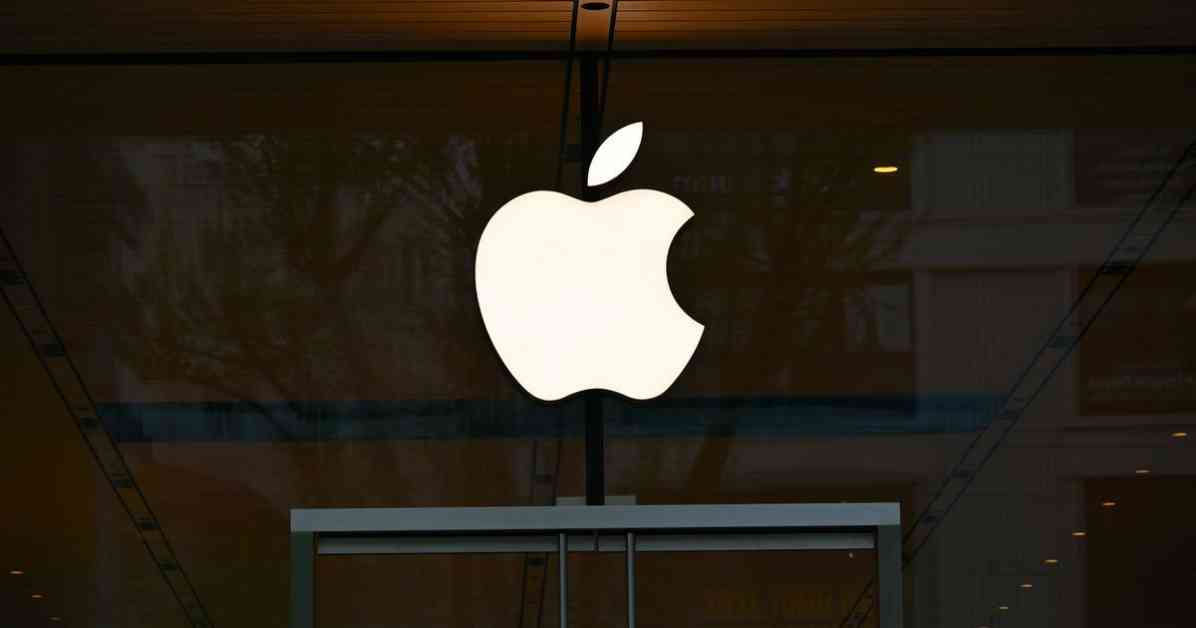Apple has been ordered to pay Ireland a staggering €13.1 billion in back taxes by the European Court of Justice, marking a significant development in the ongoing dispute between the tech giant and the Irish government. The ruling comes after a lengthy legal battle over taxes that were allegedly underpaid by Apple between 2003 and 2014.
The European Commission first took up the case in 2016, arguing that Apple had benefited from illegal state aid in Ireland through two Revenue rulings in 1991 and 2007 that substantially lowered the company’s tax payments. Despite initial resistance from both Apple and the Irish Government, the ECJ’s decision has now made it clear that the tech giant must repay the substantial sum.
The funds in question have been held in an independent third-party escrow account since the original ruling, awaiting a final decision on the matter. With the ECJ’s ruling now in place, the €13.1 billion must be transferred to Ireland, posing a significant financial windfall for the country.
In response to the ruling, a spokesperson for Apple expressed disappointment, emphasizing that the company has always paid all the taxes it owes and that there was no special tax deal in place. The spokesperson stated, “This case has never been about how much tax we pay, but which government we are required to pay it to. We always pay all the taxes we owe wherever we operate and there has never been a special deal.”
However, the European Commission has argued that the tax arrangements in Ireland provided Apple with a competitive advantage over other companies, violating EU state aid rules. The Commission’s investigation revealed that Apple’s tax arrangements in Ireland allowed the company to pay substantially lower taxes than other businesses, giving it an unfair edge in the market.
Labour TD Ged Nash emphasized the significance of the judgment, calling on the Irish Government to address the broader implications for the country’s corporation tax system and industrial policy. He stated, “Today’s judgment is a landmark one. The Minister for Finance must make a statement today outlining the wider implications of the judgment for Ireland’s corporation tax system and for our industrial policy. This is a genuine windfall for the State.”
The decision to make Apple pay back the €13.1 billion in taxes is expected to have far-reaching consequences for both the tech giant and Ireland. It serves as a reminder of the importance of fair tax practices and compliance with EU regulations in the corporate world. The ruling also highlights the need for transparency and accountability in tax matters to ensure a level playing field for all businesses operating within the EU.
Implications for Apple
For Apple, the ECJ’s ruling represents a significant financial setback that could impact the company’s future operations and investments. The €13.1 billion in back taxes is a substantial amount that will need to be paid to Ireland, potentially affecting Apple’s bottom line and profitability.
Moreover, the ruling could have broader implications for Apple’s global tax strategy and relationships with other EU countries. The tech giant may need to reassess its tax planning and compliance practices to ensure that it meets the requirements set forth by the EU and other regulatory bodies.
In light of the ruling, Apple may also face increased scrutiny and pressure from regulators and stakeholders to be more transparent about its tax affairs and practices. The company’s reputation and standing in the business community could be at stake if it fails to address the concerns raised by the ECJ’s decision.
Impact on Ireland
For Ireland, the €13.1 billion windfall from Apple’s back taxes could provide a much-needed boost to the country’s economy and public finances. The funds could be directed towards critical areas such as housing, infrastructure development, and social services, benefiting the Irish population as a whole.
However, the ruling also raises questions about Ireland’s tax policies and practices, particularly in relation to multinational corporations operating within its borders. The country’s reputation as a tax haven for tech giants like Apple may come under scrutiny, leading to potential changes in its tax laws and regulations.
The Irish Government will need to carefully consider the implications of the ECJ’s decision and take steps to ensure compliance with EU state aid rules and tax regulations. Transparency and accountability will be key in rebuilding trust with the EU and other international partners following the ruling.
Looking Ahead
As the dust settles on the ECJ’s ruling, both Apple and Ireland will need to navigate the implications of the decision and chart a path forward. The tech giant will have to comply with the repayment of the €13.1 billion in back taxes, while the Irish Government will need to address the broader implications for its tax system and industrial policy.
The ruling serves as a reminder of the importance of fair tax practices and compliance with EU regulations in the corporate world. It underscores the need for transparency and accountability in tax matters to ensure a level playing field for all businesses operating within the EU.
In the coming months and years, the fallout from the ECJ’s decision will continue to unfold, shaping the landscape of taxation and regulation for multinational corporations in Europe and beyond. Apple’s case with Ireland may serve as a cautionary tale for other companies seeking to navigate the complex world of international tax law and regulation.












